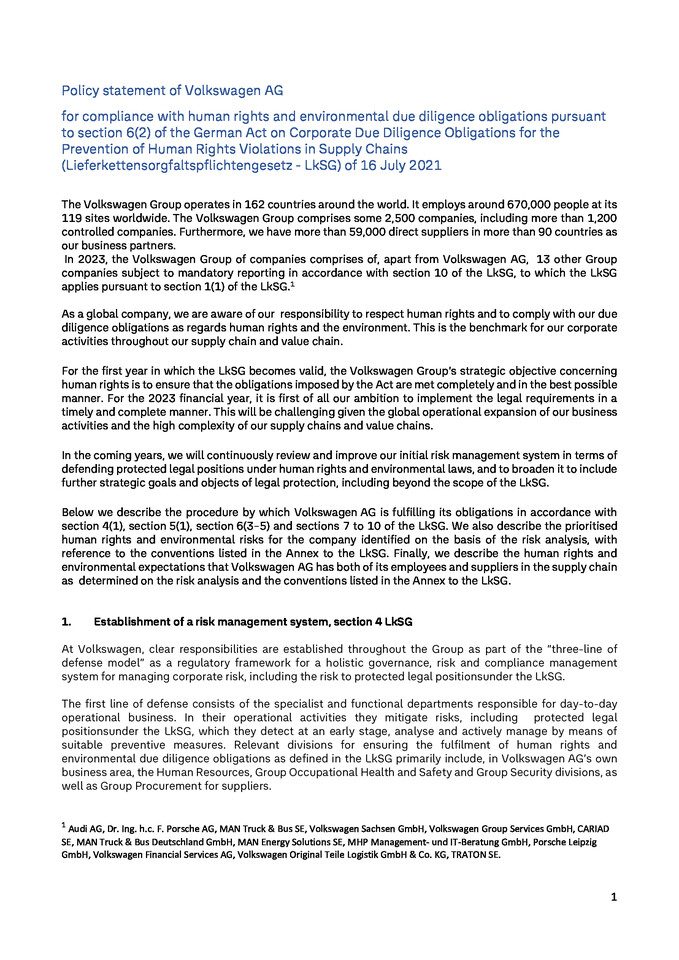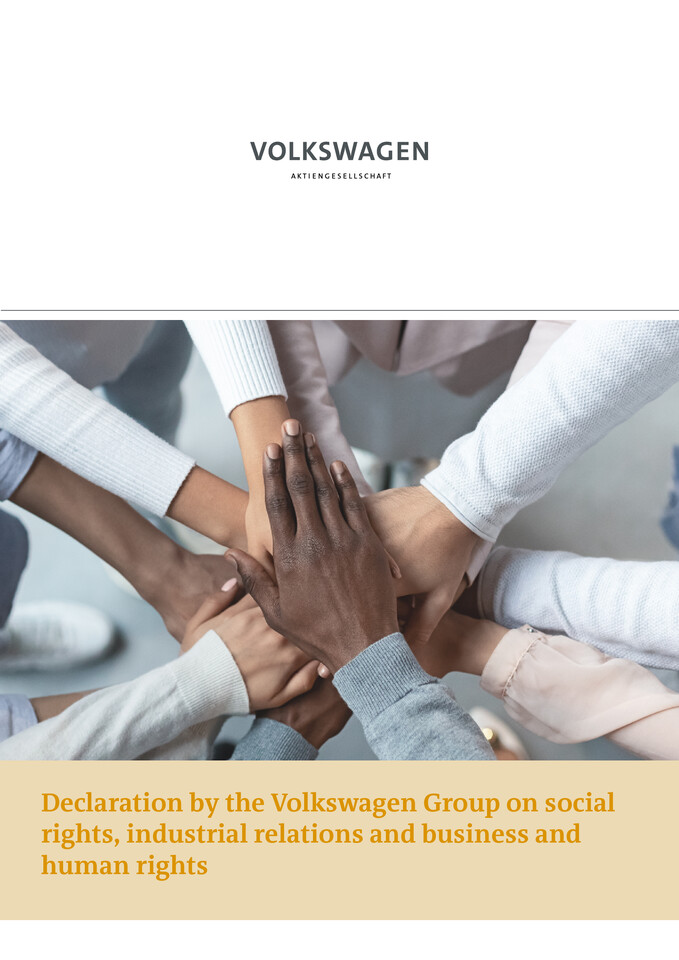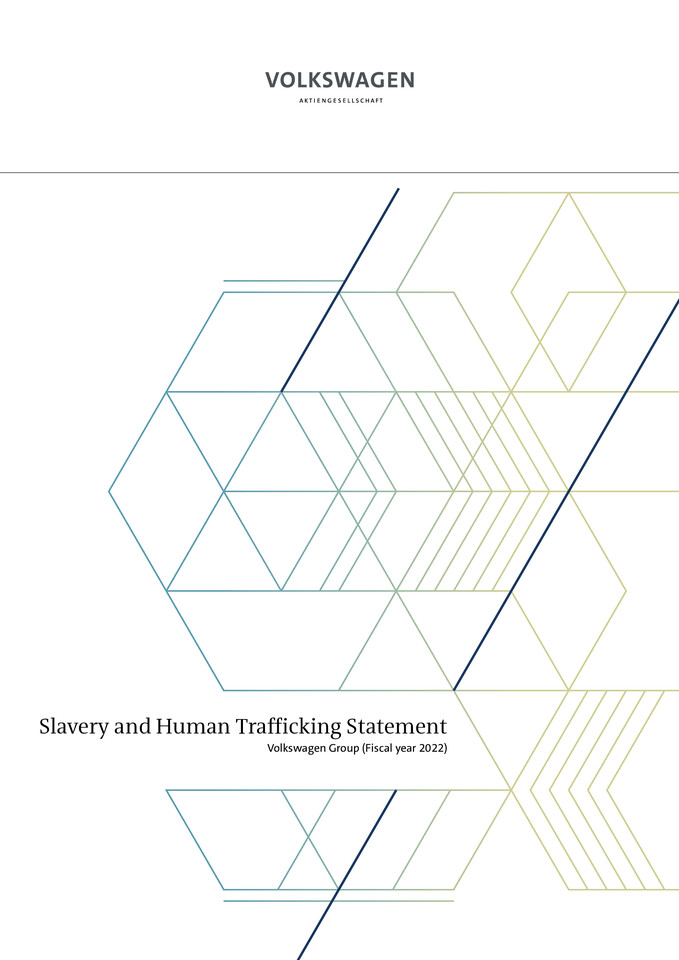Respect for human rights is of paramount importance to the Volkswagen Group. We are convinced that sustainable economic activity is only possible by acting ethically and with integrity. Within the framework of our entrepreneurial activities we are fully committed to our responsibility regarding human rights.
Human Rights

The Group Board and the European Group and Global Workers Council have established this in the Volkswagen Group's joint Declaration on Social Rights, Industrial Relations as well as Business and Human Rights, in short the Social Charter.
We confirm our commitment to major international agreements and declarations, in particular the International Bill of Human Rights and the core labour standards of the International Labour Organization (ILO). Our entrepreneurial activities follow the UN Guiding Principles on Business and Human Rights (UN Global Compact), which determine the most important cornerstones for our actions.
The Human Rights Officer
As the very first company listed in the German stock index, Volkswagen AG created the independent function of a Human Rights Officer in August 2022. This position serves as the first point of contact for all human rights-related issues from authorities, NGO’s and the public.
One of the substantial tasks of the Human Rights Officer is to monitor the adequacy and effectiveness of risk management under the obligations of the German Act on Corporate Due Diligence Obligations in Supply Chains (known as the Lieferkettensorgfaltspflichtengesetz, abbreviated as LkSG), carrying out the function provided by § 4 (3) LkSG, by exercising risk-based controls.
“Our stakeholders have the right to expect Volkswagen to play a leading role when it comes to Human Rights. The appointment of a Human Rights Officer with competencies well beyond our legal obligations is setting a clear signal that Human Rights are of paramount importance to Volkswagen.”

Core Tasks and Obligations under the LkSG
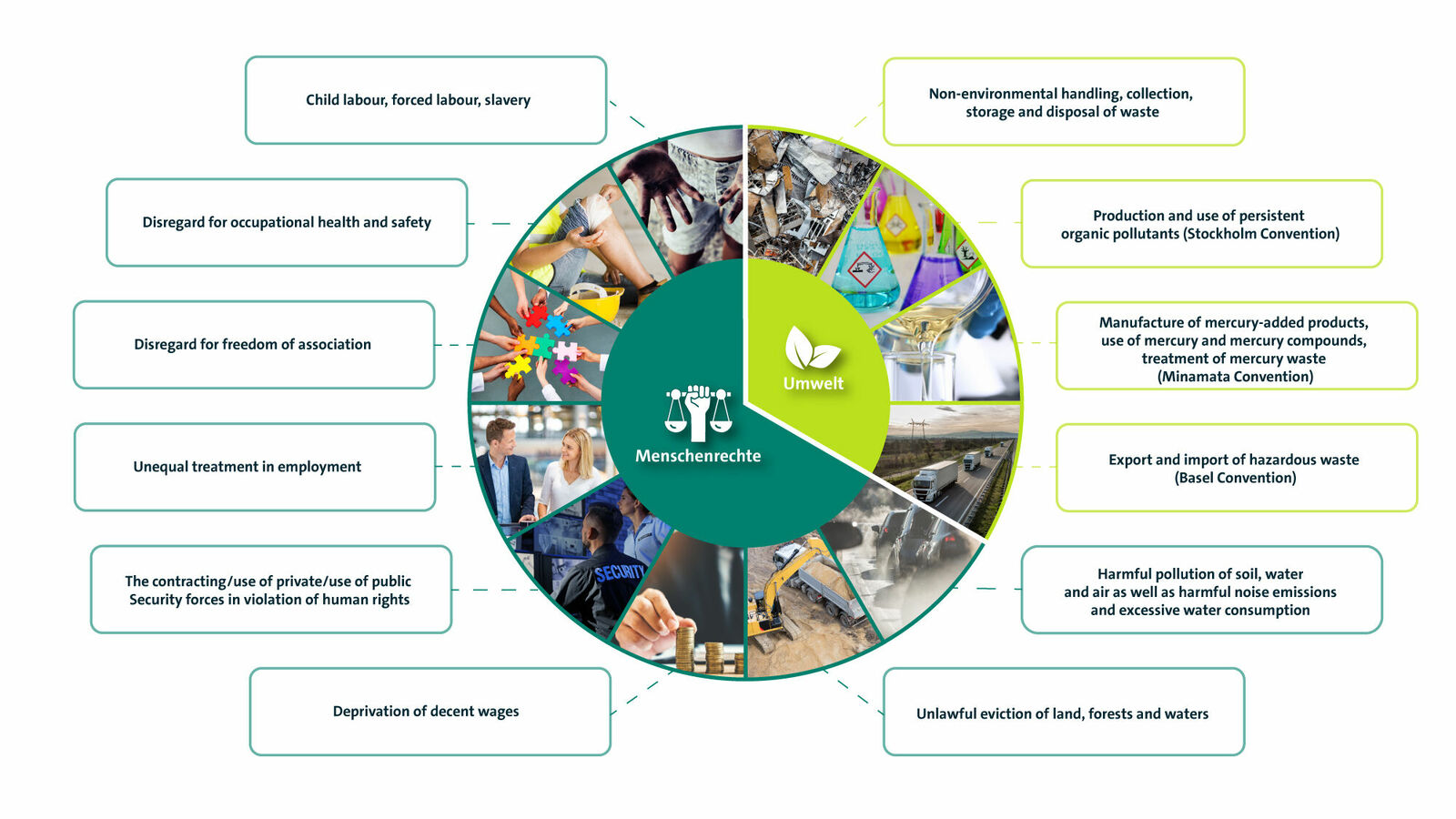
In order to avoid both Human Rights and environmental risks, the LkSG specifies several obligations concerning due diligence that companies must adhere to. These obligations include, among others, the implementation of risk analyses, the establishment of preventive measures, the adoption of remedial actions once legal violations have been identified as well as the establishment of a whistleblower system. The effectiveness of measures need to be checked and documented continuously.
The adherence to these obligations applies both to the Volkswagen Group's own business as well as to its supply chain. This supply chain, consisting of direct and indirect suppliers, is both complex and globally spread out due to the diversity of the Volkswagen Group’s products.
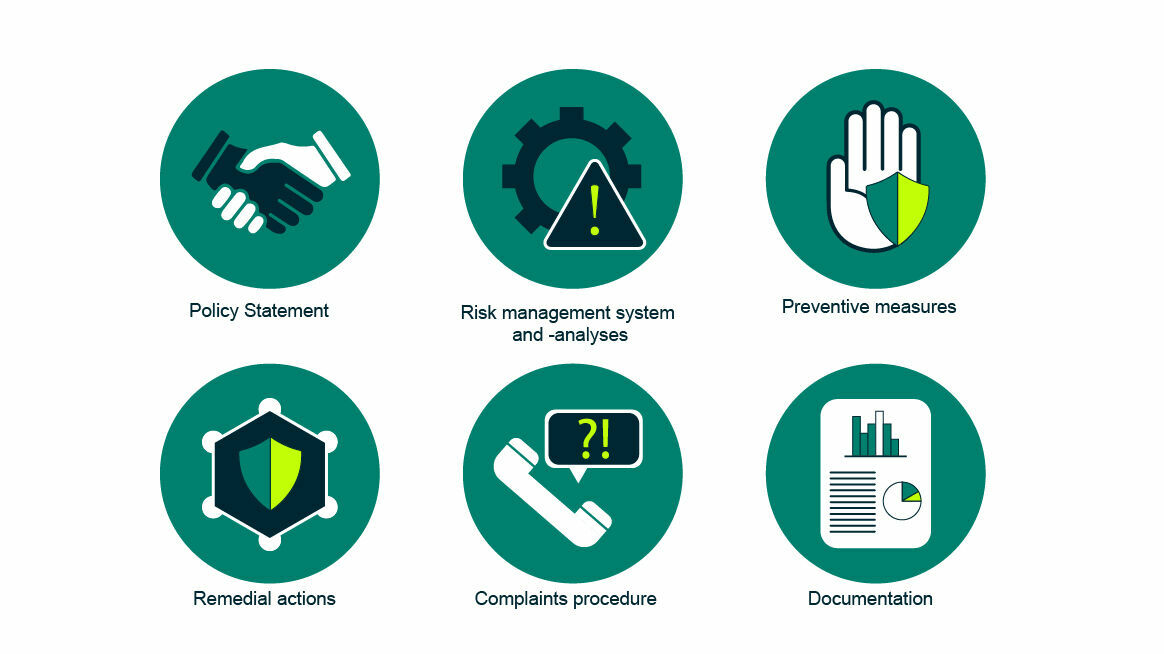
Protecting Human Rights at the Volkswagen Group
Clear responsibilities have been established throughout the Volkswagen Group within the framework of the "Volkswagen three lines model" as a holistic governance, risk and compliance management system for the steering of corporate risks.
The first line consists of the business units responsible for day-to-day operations. They need to identify risks at an early stage, analyze and mitigate these by adapting the necessary control measures. The areas for ensuring Human Rights and environmental due diligence are, among others, procurement or, in own business, human resources.
The second line is responsible for controlling and advising the first line which includes, among other things, the area of compliance.
The third line consists of internal audit as the objective auditing body.
The Human Rights Officer primarily takes care of the tasks as laid out in § 4 (3) of the LkSG. This includes the monitoring of the adequacy and effectiveness of risk management in the first and second lines and the implementation of risk-based controls.
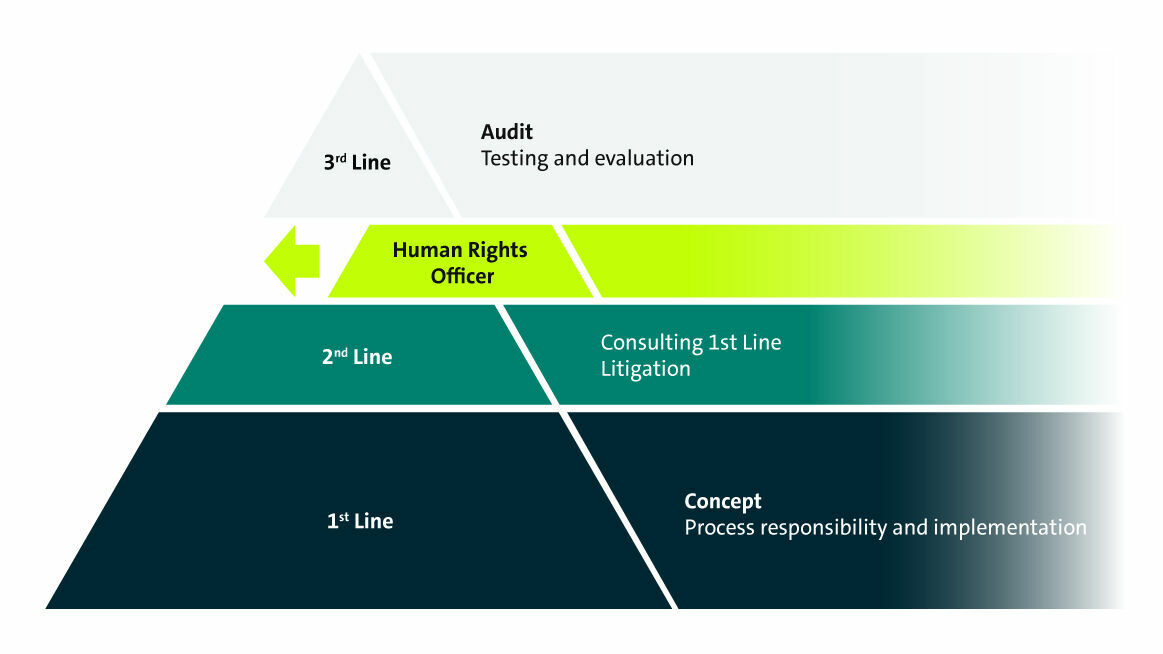
“As a globally active company, the Volkswagen Group stands for individual freedom, fair working conditions, open world trade, economic development and peaceful coexistence. In our global business activities, we ensure that we live our values and that our standards are adhered to. We expect the same from our business partners.”

The Whistleblower System
At Volkswagen AG we follow up hints with the necessary seriousness:
Potential violations of Human Rights as well as environmental risks in own business as well as by direct and indirect suppliers and other business partners can be reported to the Investigation Office at all times. This is also relevant for any other hints that may require immediate action. The Investigation Office will inform the responsible departments who will process the issue accordingly. This includes in particular taking the necessary measures to minimize or end violations and/or risks in case of confirmed initial suspicions.
Further information regarding the procedural principles of the Volkswagen Group Complaints Procedure can be found here.








